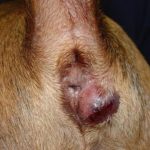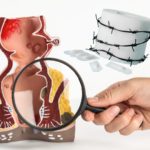Can Hemorrhoids kill you? Despite being potential debiliatnting disease, Hemorrhoids by themselves cannot kill you .
Hemorrhoids are an anatomical formation of the anal canal, they are soft pads of tissue that contribute to the discrimination of rectal contents, the maintenance of continence and evacuation. Under normal conditions their presence is not felt, but their excessive swelling generates discomfort and symptoms such as prolapse, pain, burning, itching or bleeding.
The term hemorrhoids designates both the venous structures and the dysfunction, more correctly indicated as a pathology or hemorrhoidal disease.
Can hemorrhoids kill you? Depending on the severity of the prolapse, four stages are identified:
- Stage I: non-prolapsing internal hemorrhoids
- II stage: prolapsing but spontaneously reducible hemorrhoids
- Stage III: Prolapsing hemorrhoids requiring manual reduction
- IV stage: constantly prolapsed hemorrhoids
What are hemorrhoids?
The haemorrhoidal pathology is a dysfunction linked to the inflammation of the haemorrhoidal veins, the haemorrhoids, which slide out of their natural seat in the anus due to the collapse of the rectal mucosa. In some cases, a blood clot (clot or thrombus) forms, which amplifies the painful symptoms.
The dysfunction can affect both internal and external hemorrhoids, located around the anus. Hemorrhoids are a common ailment. It is estimated that about half of people over the age of 50 have had, more or less acutely, a hemorrhoid problem.
What are the causes of hemorrhoids?
The causes of hemorrhoids are many (family predisposition, chronic constipation, sedentary lifestyle, overexertion, pregnancy, prolonged standing, etc).
These factors cause a collapse of the structures present in the anus which leads to an outward flexion of the hemorrhoids, exposing them to inflammation, excessive swelling, rupture and friction of exertion during defecation.
What are the symptoms of hemorrhoids?
Symptoms of hemorrhoidal disease are:
- pain, particularly when defecating or while sitting
- small blood loss, which is usually seen after defecation and is due to blood vessel ruptures
- itching and severe discomfort
- swollen or foreign body sensations in the anus
- in some cases, an abnormal loss of stool
- presence to the touch of soft bodies external to the anus
- Complications of hemorrhoids are rare and occur when the dysfunction is prolonged. Blood loss can cause iron deficiency (anemia) or severe tissue damage. If the hemorrhoid is constricted, the epithelial tissue can undergo a form of gangrene.

How to prevent hemorrhoids?
To remove the risk of hemorrhoids it is good to observe a healthy lifestyle that includes:
- moderate physical activity, a high-fiber diet, fluid intake. It is advisable to drink at least two liters of water a day,
- avoiding alcohol
- If you have suffered from hemorrhoids it is good to try to keep the area always clean, trying to avoid using too aggressive products. It is good to avoid forcing the defecation too much. In difficult situations it is better to resort to the use of laxatives, referring the need to the doctor
- It is also advisable to avoid a sedentary lifestyle, alternating, during work or domestic rest, periods in which one is seated with short walks
Diagnosis
Hemorrhoidal symptoms can be very annoying but exceptionally involves a real health risk. However, it is essential to exclude that the disorders derive from other pathologies and in particular from colorectal cancer. For this reason, patients over the age of 40 who have anorectal bleeding or other risk factors undergo a colonoscopy.
The diagnosis of hemorrhoids occurs through a visit to the colon-proctologist specialist. Usually, doctors inspect the rectal area to examine the characteristics of the prolapse. The visit can also be conducted with the use of instruments that facilitate observation such as anoscope, proctoscope or sigmoidoscope.
Can hemorrhoids kill you ? Anbsolutely not, here are some treatments
Treatment of hemorrhoidal disease depends on the duration and intensity of the discomfort. In fact, in most cases, hemorrhoids tend to heal on their own after a certain period. Sometimes it is enough to modify the diet, with the introduction of fiber, vegetables and liquids.
The treatments also vary according to the classification stages:
- for the first and second stage, medical treatment based on hygienic-dietary rules (diet rich in waste, regular physical activity) and on the use of some drugs, especially with local action, is generally sufficient
- in the second stage, if it does not improve with conservative treatment, non-surgical techniques such as elastic ligation and sclerosing injections can be adopted, procedures that can be performed on an outpatient basis without anesthesia but whose effectiveness is generally partial and transitory
- surgery is usually recommended for grade III and grade IV hemorrhoids
Traditional haemorrhoidectomy involves the removal of the haemorrhoids, linking the veins inside the anal canal with absorbable sutures. The most effective alternative to the classic surgery is hemorrhoidopexy, this surgery differs substantially from traditional hemorrhoidectomy.
The principle on which the surgery is based is to reposition the hemorrhoids inside the anal canal by shortening the internal mucous lining of the rectum.






